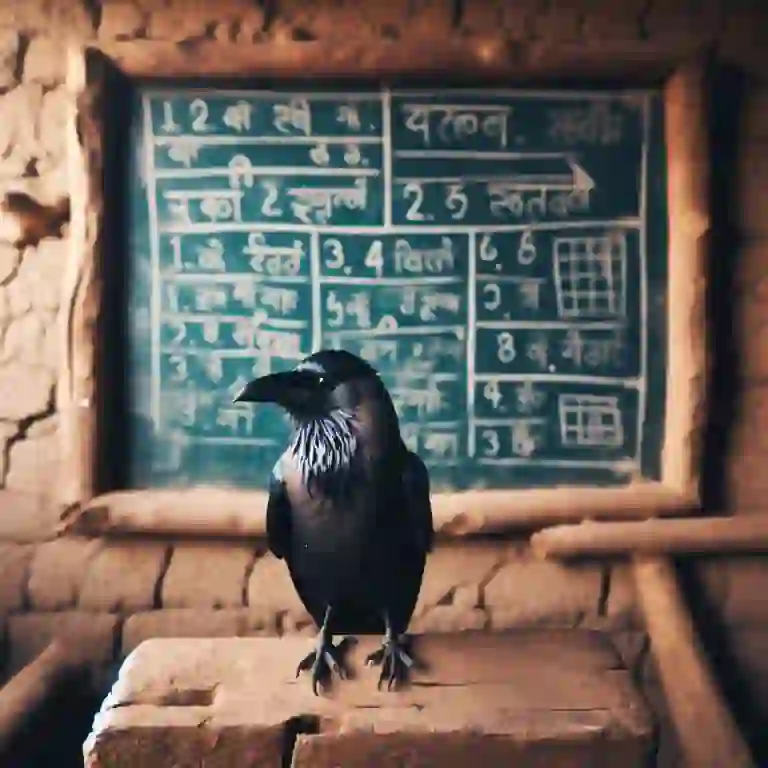
‘Siraj, let’s begin with your teaching.’ I said. ‘Start the ball rolling.’
As Siraj stood up, he wrinkled his nose and twisted his mouth. I thought the effort was to produce a smile, but the result was an unintended grimace. A short portly man with a bulbous nose and a big salt-and-pepper moustache, he wore a pair of skimpy jeans far below his belly buttons which accentuated his shortness, and a long-sleeved shirt with the sleeves rolled to his elbows. He swaggered around as he carried his bulk towards the front of the class, and there was an impressive display of clumsiness as he did so. However, he exuded absolute confidence as he stood facing his students and uttered a stern hello. Then he announced that he was going to teach a 20-minute grammar lesson. Not too bad, I thought: he might be dressed awkwardly, but he knew how to conduct himself in the classroom. There’s something to be said for experience after all, I reminded myself.
It was a microteaching workshop on a faculty development programme with me as the resource person. On the first day of the workshop, the participants, who were teachers of English from different colleges, had had plenty of input, including procedures about how microteaching should be done, and discussion sessions. On the second and the third days, each participant was required to teach a microlesson with a peer group of three teachers observing it and the rest of the teachers acting as students. Siraj was the most senior of all the teachers, so it fell to his lot to teach the first microlesson.
Siraj’s lesson didn’t progress beyond the introduction. He was fidgeting restlessly, running a hand over his scraggly hair and eying the air conditioner warily.
‘What’s holding you back, Siraj?’ I asked him. ‘Any problem?’
After some ums and ahs, he asked me if the AC could be turned off. ‘Isn’t it too cold, sir?’ he said slurring his words.
Not at all, I thought, but I only said, ‘A bit. But we can turn the temperature up, Siraj. I thought that if the windows were closed, the hall would be noise-free and the recording would be good. But if you feel uncomfortable, we’ll turn the AC off. Is that okay?’ I turned to the rest of the participants.
It was acceptable to everyone, and the AC was turned off. We waited for a minute for the windows to be opened and the fans to be turned on. It still seemed a noise-free environment except for the whirring of the fans; there were no classes in the neighbouring rooms, and so the recording of the lessons was not going to be affected.
Siraj looked relaxed now. He announced again that he was going to teach a grammar lesson. As if to compensate for his initial sternness, he grinned widely now, showing off a set of sparkling white teeth below a bulbous nose against the background of a dark face, shiny with sweat. I wondered why he had complained that it was too cold when sweat was pouring down his face.
Siraj was now ready to teach. ‘What are articles?’ he asked in the Socratic tradition as he picked up a marker pen from the chalk-holder, leaving me to wonder if there was going to be no lead-in. Why was he putting the car into gear straightaway, I asked myself. Perhaps he believed that his toothy grin struck a lead-in note, I tried to convince myself; perhaps the Socratic question was the lead-in, and I must wait patiently.
‘What are articles?’ the teacher asked again, fixing his gaze on the white board rather than the students in front of him. But he didn’t wait for an answer. ‘Articles are a, an, and the,’ he answered the question himself with an unSocratic touch, and wrote the three words on the board. The “students,” who were after all his own colleagues, sat with a bemused expression on their faces.
‘What are alphabets?’ Siraj asked next, stressing the final -s without as much as looking in the direction of the students. Then he wrote all the 26 letters of the English alphabet on the board and, with the utmost assiduity, explained to the board the phonetic realization of each letter.
More Stories:
I sat up. It seemed a new approach to the teaching of articles, and I was excited by the sheer novelty of the experience. But the novelty began to cloy soon. The teacher underlined each letter and said something in a stifled voice addressing the board. It was like a priest performing a ritual intoning a Gregorian style chant with his back turned on the congregation. The alphabet exercise continued for quite some time and led nowhere.
Murmurs rippled across the classroom now. Amused curiosity was giving way to mild irritation. The three observers sighed impatiently and cast a look of appeal at me. ‘Supervisor, why don’t you stop this?’ the eyes seemed to say. I half-closed and opened my eyes with a slight nod urging patience. The students were now smiling; the interlude of exchange between the observers and the supervisor happening in a corner must have provided them with the much-needed comic relief.
But the teacher was a picture of dedication. He was deeply absorbed in the a-an-the business, oblivious to all this drama happening in front of him – behind him, rather, because it was the white board that was in front of him. The bond between him and the board on which he was writing seemed to be deepening, so much so he never once turned his back on the board.
Caw, caw, caw…
I woke with a start, rubbing the sleep out of my eyes. Was caw-caw-caw an alternative way of saying a-an-the? But the unphonetic variants were coming from above, not from the teacher.
I looked up. It was a crow. Now that the windows were open, a free entry was possible for him, and the winged intruder didn’t miss it. He was sitting perched on a window rod and giving loud caws. Moving here and there on the iron rod, he flapped his wings several times before he settled into a comfortable position and cawed again. Our eyes met for a moment, and the cawing stopped. He tilted his head sideways and peered at me and then at the observers from an oblique angle for some time. Then he quickly turned his head back to preen his feathers. When this ritual was over, he slanted his head to the left again and surveyed the situation in silence. When his monocular focus fell on the teacher, he cawed with a vengeance.
Caw, caw, caw…
More Stories:
But the moving finger kept moving; it wrote, and having written, it moved on. And the chant continued unperturbed. Twenty-five minutes had gone by already, and the microlesson was threatening to become a macro one. The students were giving long, weary sighs.
The intruder looked determined now. He bent forward and fixed the teacher with a binocular vision. Then he gave louder caws. Caw, caw, caw…
All eyes were on the bird now. If only he could stop the teaching and liberate the students!
I looked at the bird with new eyes now. Black, I said to myself, was indeed beautiful. There was music in the cawing, too. Come to think of it, no nightingale did ever chant more welcome notes than the crow. A nightingale, I reflected, was only a nightingale, but a crow could be a crusader.
But the teacher didn’t look back; he was getting on with his work, undisturbed. It was the most dazzling display of sangfroid I had ever seen. And the white board no longer looked white.
Now the uninvited visitor seemed determined to prove himself. He bowed his body stretching it out and let out a high-pitched shriek. Caw, caw, caw…! The teaching seemed drowned out by the aggressive squawks of this spirited newcomer.
This seemed to be working at last. With a twist of his bulky body, which in cinematography would be called a slow-motion twist, the teacher turned, sniffing and wrinkling his bulbous nose. He took a step forward, and eyed his feathered foe warily. Now, Siraj was no Cyrano de Bergerac. He might have a nose as gargantuan as that of Rostand’s hero, but he lacked the spirit and bravery of the French swordsman and swashbuckler. He looked weak and vanquished as he regarded his determined adversary who kept fixing him with a hard glare like a chivalrous knight in shining armour. Then he stepped back dramatically, and dropped the marker pen in the chalk-holder. He tried to smile – and his eyes did indicate that – but the smile seemed locked behind his closed lips.
The victor quickly straightened up and flapped his wings. Fixing the class with one long magisterial gaze with both eyes, he gave a parting caw. Then he flew away.
Ramanujam Parthasarathy is a creative writer and translator whose works in English and Tamil have been published in Indian Literature (Sahitya Akademi), Span, The Hindu (Sunday Magazine & Literary Review), The Indian Express (Magazine), Readomania, Kanaiyazhi, Ananda Vikatan, Solvanam, and Thinnai. He has been a newspaper columnist as well. In a career in higher education spanning forty years of teaching, teacher training, researching, research reviewing, and materials writing, he has worked as Director, Loyola ELT Centre, at Andhra Loyola College; Director (Training) at Vignan University; and Director, ELT Centre at SR Gudlavalleru Engineering College. He lives in Vijayawada.







Leave a Reply